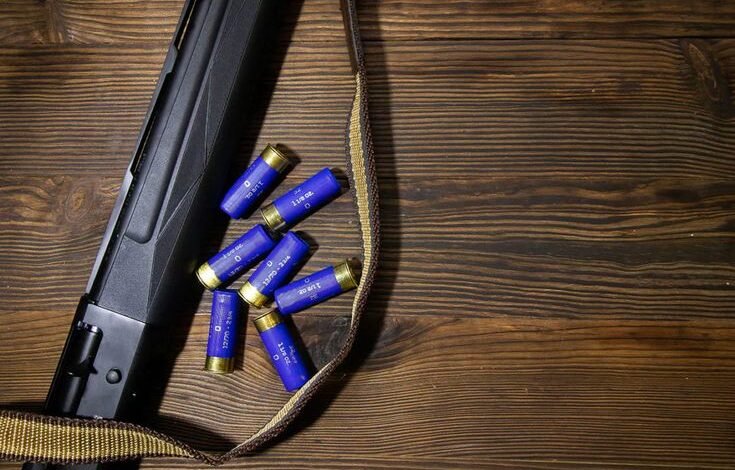Best Home Defense Shotgun: Top Picks for Protection
Best Home Defense Shotgun: Top Picks for Protection

Keeping your home and loved ones safe is a top priority for every homeowner. One of the most effective tools for ensuring security in your household is a home defense shotgun. Known for their reliability and stopping power, shotguns are often a popular choice for defending your home against threats.
This guide will help you understand everything you need to know about home defense shotguns—from their features and selection process to safety, legal considerations, and storage tips. Whether you’re new to firearms or looking to upgrade your current setup, this post will empower you to make the right decision.
What is a Home Defense Shotgun?
A home defense shotgun is a firearm specifically designed or chosen for protecting your household. Unlike other self-defense weapons, such as handguns or rifles, shotguns offer a unique combination of power, simplicity, and versatility.
Why Choose a Shotgun Over Other Home Defense Weapons?
- Stopping Power: Shotguns deliver a significant impact, providing unparalleled stopping power compared to most handguns.
- Ease of Aim: The spread pattern of a shotgun minimizes the need for precise accuracy, making it effective in high-stress situations.
- Versatile Ammunition: With options such as buckshot, birdshot, and slugs, shotguns can be tailored to your specific needs.
Compared to handguns, which require precision aiming, and rifles, which may be overpowered for home defense, shotguns are practical and effective for most homeowners.
Key Features of an Effective Home Defense Shotgun
When choosing a shotgun for home defense, understanding the key features can help you make the right choice. Here are some critical aspects to consider:
1. Gauge Size
The gauge of a shotgun determines the size of its barrel and the ammunition it uses.
- 12 Gauge: The most popular choice, known for its power and versatility.
- 20 Gauge: Offers less recoil, making it a great option for beginners and those sensitive to heavy kickbacks.
2. Barrel Length
- Short Barrels (18-20 inches) are ideal for home defense, as they are easier to maneuver in tight spaces.
- Longer barrels may offer better accuracy but are less practical in close-quarters scenarios.
3. Ammunition Types
- Buckshot: Excellent for stopping power and close-range effectiveness.
- Birdshot: Effective for indoor use with reduced risk of overpenetration.
- Slugs: Provide maximum firepower for long-range scenarios but may not be suitable for all home situations.
4. Action Type
- Pump-Action: Reliable, straightforward, and easy to use, a classic choice for home defense.
- Semi-Automatic: Faster follow-up shots but requires more training to operate effectively.
By evaluating these features, you’ll be one step closer to finding the best shotgun to suit your needs.
How to Choose the Best Home Defense Shotgun
Finding the right shotgun isn’t just about the specs; it’s about aligning the firearm to your specific needs and home environment. Here are the steps to help you decide:
1. Assess Your Home Layout
If you live in a tight space, such as an apartment, a compact shotgun with an 18-inch barrel may be best. For larger homes, you may have more flexibility in terms of size and action type.
2. Match to Your Skill Level
- If you’re inexperienced, consider a 20-gauge pump-action shotgun for less recoil and ease of use.
- For seasoned shooters, semi-automatic models can provide faster response times.
3. Test at the Range
Whenever possible, visit a shooting range to test out different shotguns. This hands-on approach allows you to find a firearm that feels comfortable and natural.
Real-Life Scenario
Consider this scenario: A homeowner protects their family during a break-in by using a pump-action shotgun with birdshot ammunition. The spread pattern effectively incapacitates the intruder while minimizing the risk of overpenetration into neighboring rooms. This case illustrates how selecting the right tool based on your home’s layout and personal abilities can make all the difference.
The Importance of Firearm Safety and Training
Owning a home defense shotgun comes with great responsibility. Prioritizing safety and proper training is crucial.
Key Safety Tips
- Always keep your firearm unloaded until it’s ready for use.
- Store your shotgun securely, away from children or unauthorized individuals.
- Keep ammunition locked in a separate location.
Recommended Training
Enroll in firearm safety and handling courses. Many local ranges or organizations offer training sessions tailored to home defense scenarios, ensuring you’re prepared in any emergency.
Legal Considerations for Owning a Home Defense Shotgun
Understanding the legal requirements surrounding firearms in your area is non-negotiable.
Important Legal Steps
- Research Local Laws
- Understand Castle Doctrine
- Clean your shotgun regularly using appropriate cleaning kits.
- Inspect for wear and tear, such as corrosion or barrel damage.
- Periodically check the condition of stored ammunition.
Safe Storage Options
- Use a quick-access gun safe that balances security and accessibility.
- Consider biometric locks for instant access in high-pressure situations.
- Store firearms away from high humidity to prevent rust and degradation.
By combining regular maintenance with secure storage, you’ll extend the lifespan of your shotgun and protect those around you.
Secure Your Home with Confidence
A home defense shotgun is an effective tool for protecting your home and loved ones—when chosen, used, and maintained correctly. By understanding key features, adhering to safety guidelines, and staying informed about legal requirements, you can ensure you’re prepared for any situation.
For tailored advice on choosing the perfect shotgun or to learn more about firearm training, reach out to professionals in your local area. Protect your home and sleep soundly, knowing you’ve taken the right steps for your family’s security.
Stay safe, stay informed.



